Kurt Eder
What makes Cybersecurity different for critical infrastructure?
#1about 2 minutes
Providing essential services for the city of Munich
Stadtwerke München (SWM) is responsible for a wide range of critical infrastructure, including energy, water, mobility, and telecommunications.
#2about 6 minutes
Why minimal downtime is non-negotiable for critical infrastructure
Unlike typical businesses, critical infrastructure like electricity cannot tolerate downtimes of days or even hours, making redundancy a core design principle.
#3about 6 minutes
Defending against professional and state-sponsored cyber units
Cyber threats have evolved from individual script kiddies to highly organized, well-funded military cyber units like Sandworm, changing the entire defensive landscape.
#4about 6 minutes
Managing the long lifecycle of operational technology equipment
Operational technology components have lifecycles of 15 to 40 years, creating a mix of modern and legacy systems that are difficult to secure.
#5about 10 minutes
Why even new OT equipment can be a security risk
Even recently installed OT hardware often lacks modern IT security features like TLS encryption or role-based access control due to long development cycles.
#6about 5 minutes
Navigating a fast-developing landscape of security regulations
Critical infrastructure operators must comply with a growing number of national and international standards like ISO 27000, NIS2, and the Cyber Resilience Act.
#7about 7 minutes
Building trusted partnerships with technology vendors
As system integrators, critical infrastructure providers rely on honest and transparent relationships with vendors to quickly resolve issues and ensure system reliability.
#8about 4 minutes
Using business continuity to prepare for inevitable attacks
Accepting that successful attacks will happen, the focus shifts to robust Business Continuity Management (BCM) to detect, isolate, and recover services.
#9about 15 minutes
Key industry debates on hardware regulation and reporting
The industry is actively debating whether authorities should regulate hardware for critical infrastructure and how to establish effective cyber attack reporting protocols.
#10about 10 minutes
Joining the team: Remote work and language policies
SWM offers flexible remote work options, typically three days from home, but requires a willingness to learn German as it is the primary company language.
#11about 11 minutes
How teams work with agile methods at SWM
Teams at SWM have the autonomy to choose their own work methodologies, often using agile, scrum, or kanban depending on the project's needs.
#12about 10 minutes
The unique culture and benefits of a public utility
Working at SWM provides a strong sense of purpose by serving the city, combined with benefits like job security, unlimited contracts, and pension schemes.
#13about 13 minutes
Fostering diversity and what to expect in hiring
SWM actively promotes a diverse and inclusive environment and looks for self-motivated team players in a straightforward, two-interview hiring process.
#14about 10 minutes
Keeping up with emerging trends in cybersecurity
Staying current involves a multi-path approach of industry networking, continuous learning, and hands-on personal projects, with Zero Trust and AI being key emerging technologies.
Related jobs
Jobs that call for the skills explored in this talk.
Matching moments
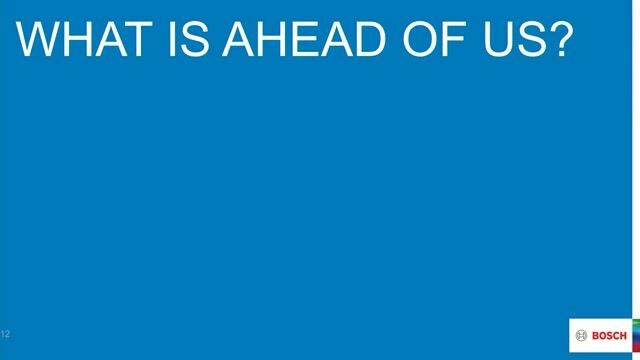
15:35 MIN
Modern cybersecurity challenges for developers
Cyber Security: Small, and Large!
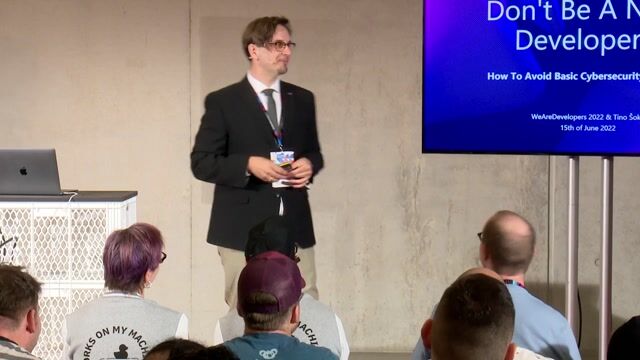
00:28 MIN
Why developers make basic cybersecurity mistakes
Don't Be A Naive Developer: How To Avoid Basic Cybersecurity Mistakes
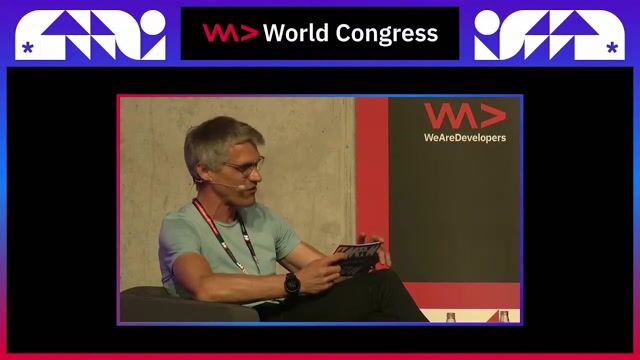
01:58 MIN
Cybersecurity is a foundational necessity not a passing trend
Decoding Trends: Strategies for Success in the Evolving Digital Domain
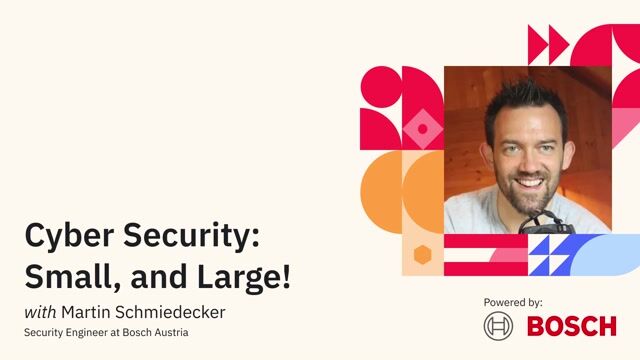
00:02 MIN
The role of security in specialized vehicle projects
Cyber Security: Small, and Large!
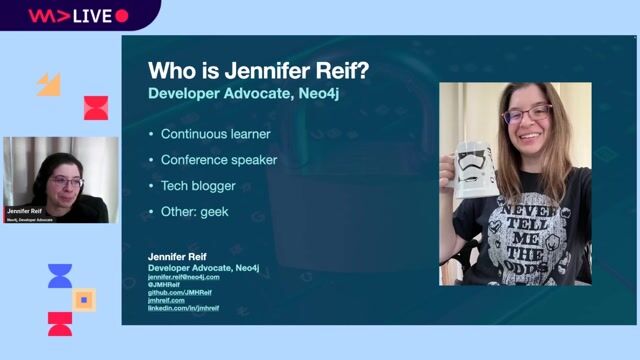
01:20 MIN
Understanding the complexity of modern cybersecurity threats
Cyber Sleuth: Finding Hidden Connections in Cyber Data

00:45 MIN
The expanding role of developers in security
Vulnerable VS Code extensions are now at your front door

41:08 MIN
Impact, disclosure, and mitigation strategies
Vulnerable VS Code extensions are now at your front door
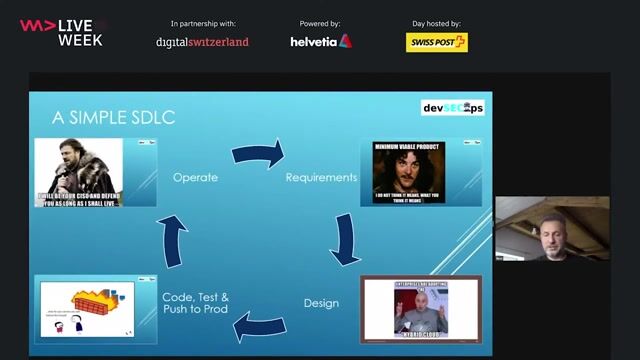
28:05 MIN
A developer's responsibility to build secure software
You can’t hack what you can’t see
Featured Partners
Related Videos
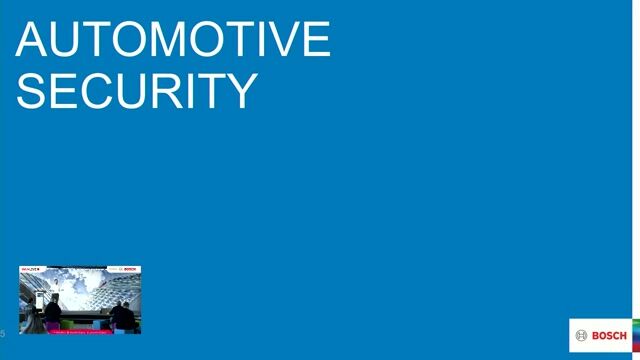 37:32
37:32Cyber Security: Small, and Large!
Martin Schmiedecker
 22:09
22:09Cybersecurity for Software Defined Vehicles
Henning Harbs
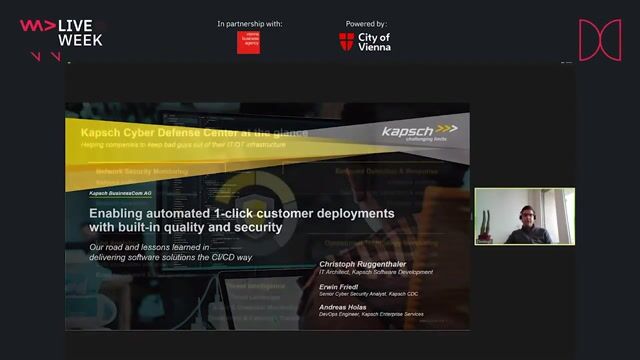 44:40
44:40Enabling automated 1-click customer deployments with built-in quality and security
Christoph Ruggenthaler
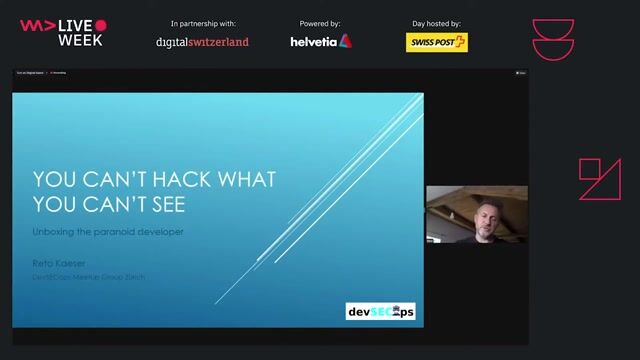 29:34
29:34You can’t hack what you can’t see
Reto Kaeser
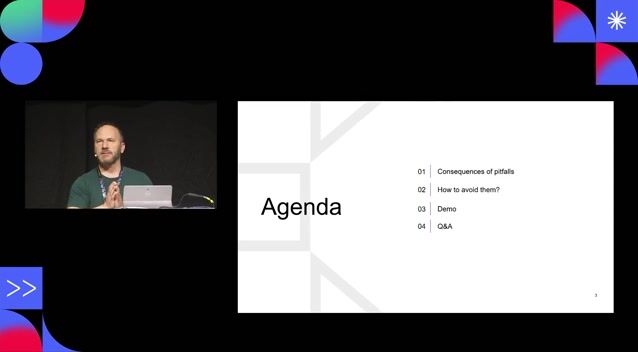 27:32
27:32Security Pitfalls for Software Engineers
Jasmin Azemović
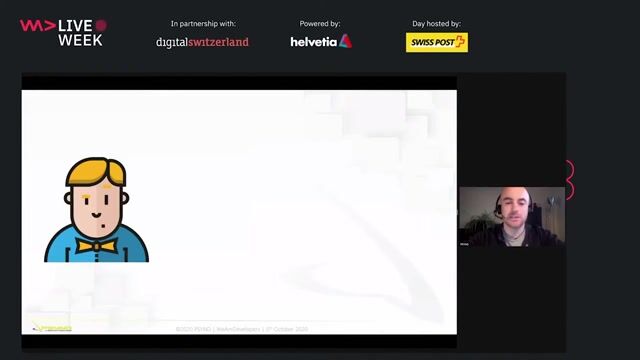 43:56
43:56Getting under the skin: The Social Engineering techniques
Mauro Verderosa
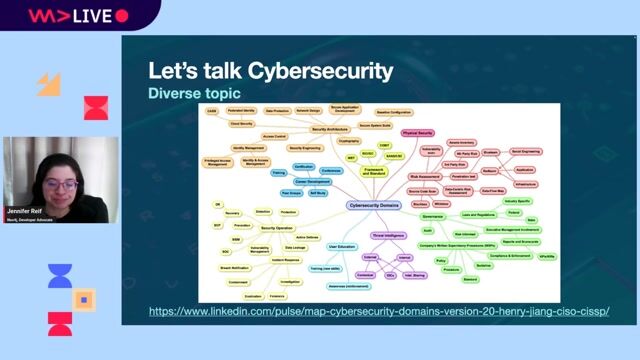 1:00:19
1:00:19Cyber Sleuth: Finding Hidden Connections in Cyber Data
Jennifer Reif
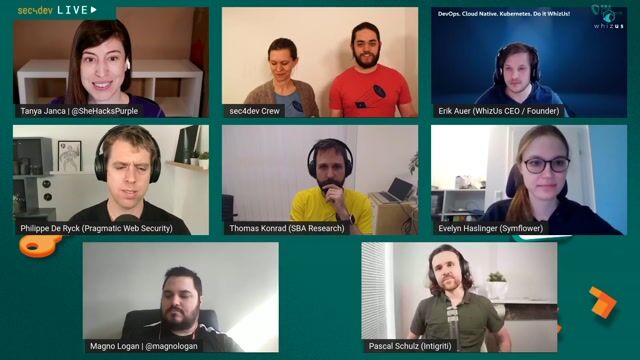 51:41
51:41Climate vs. Weather: How Do We Sustainably Make Software More Secure?
Panel Discussion
From learning to earning
Jobs that call for the skills explored in this talk.




Cyber Security Engineer:in im Security Operations Center
DB InfraGO AG
Berlin, Germany
Bash
Python
Splunk
Powershell




IT Security Engineer als Cybersecurity-Architekt OT/ICS-Netzwerke
Swarco AG
Nürtingen VVG, Germany
Linux
Ansible
Network Security




Cyber Security Spezialist:in für kritische Infrastruktur (m/w/d), Deutschlandweit
360 Grad GbR
Wietze, Germany
Remote
€70-100K
Network Security


Cyber Security Specialist / IT Administrator - Focus on IT Security (m/f/d) Cyber Security Specialist / IT Administrator - Focus on IT Security (m/f/d)
COMPUTIME Netzwerkservice GmbH
Bardowick, Germany
Remote
€51-70K
Network Security


Cyber Security Engineer
Schwarz Dienstleistung KG
Neckarsulm, Germany
Python
Docker
Kubernetes
Continuous Integration
Amazon Web Services (AWS)


Cyber Security Manager - Operational Technology (OT)
Ge Vernova's Power Conversion
Birmingham, United Kingdom
Burp Suite
Software Architecture


